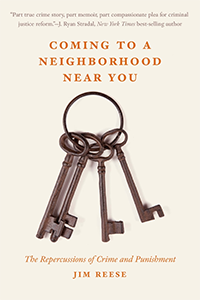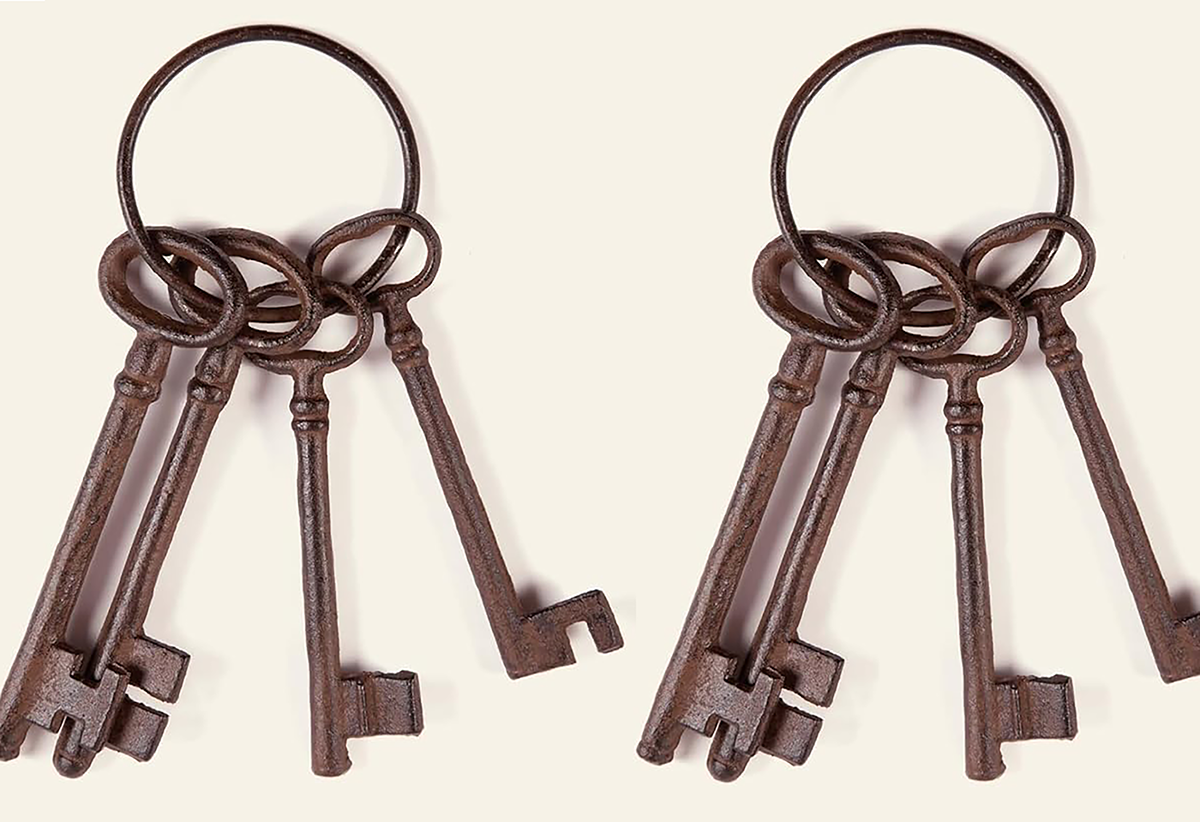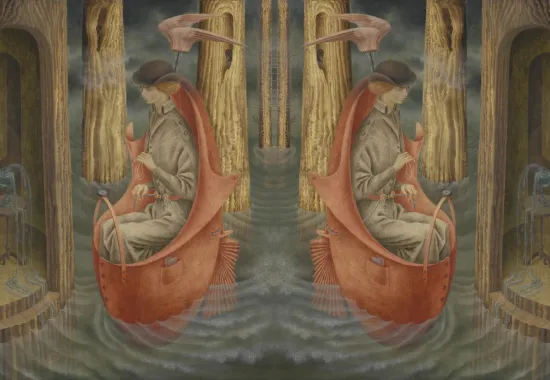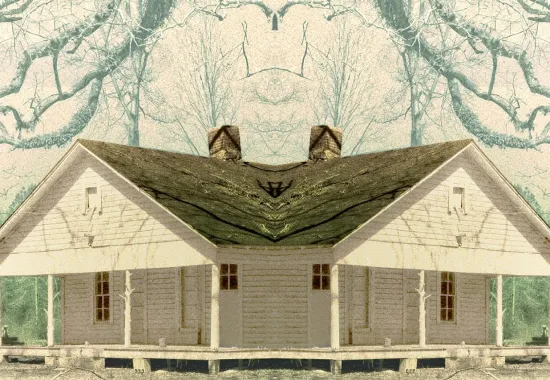A Review of Jim Reese's Coming to a Neighborhood Near You
There’s an old saying that a conservative becomes a liberal after being accused of a crime, and a liberal becomes a conservative after becoming the victim of a crime.

Author Jim Reese’s new book Coming to a Neighborhood Near You: The Repercussions of Crime and Punishment turns that well-worn saw on its face. His book helps us to see that when it comes to crime and punishment, whether you’re liberal or conservative, the further you are from power and its tenacious twin, money, the more likely you are to face the injustice of our existing inequitable system.
Reese’s new book is an illuminating social-justice memoir focused on crime and the system built to contain it. Via deep reporting and his lived experience, Reese unravels a system shaped by fear, anger, retribution, and the irrational, with prospects for reform dependent on our better angels—empathy, education—and the struggle to confront the worst of our human nature.
The US justice system is peculiarly perverse because of the incentives built into it for not fixing what is broken—including the mass incarceration of addicts and institutionalization of the mentally ill (usually only after they commit violent acts, often while homeless). Those incentives, including a system that profits off the prison-industrial complex, trump sound reasoning and the lucid calls for reform.
Reese writes in his book:
Incarcerating people with illnesses is unjust. So why do we do it? Because working to make things better is hard. And the people who control the money and in turn control people enjoy their control far more than they would enjoy rolling up their sleeves and getting to work to help people with addictions.
Coming to a Neighborhood Near You is far more than a critique of our criminal justice system, however. It’s also an immersion into that system. The author, a university professor of English, takes us inside America's prisons—where he taught for years as part of a unique writing program designed for inmates.
The misinterpretation of gonzo⎯the idea that you need drugs and alcohol to fuel creativity⎯is some real bullshit.
Reese also offers readers a deeply personal narrative of his own confrontations with crime and punishment—including the trauma of coping with the vicious murder of a high school friend as well as critically chronicling his own struggles with addiction and his path out of its grip.
For me, another compelling theme in the book is squarely focused on chronicling one’s lived experience and the art of writing about it, including an exploration of so-called “gonzo” journalism. It’s a term coined by the original practitioner, journalist Hunter S. Thompson—a brilliant writer renowned for his drug-infused prose and arguably one of the first “media influencers.”
Reese puts it this way:
The misinterpretation of gonzo⎯the idea that you need drugs and alcohol to fuel creativity⎯is some real bullshit. There’s just no truth to it…. The power of gonzo, as exemplified by my tattoo, resides in the fist, not the peyote bud. Gonzo asks why. And you try never to settle for “Just Because” as an answer.
The relentless demon that pulls Reese into his journey and with which he seeks to do battle over the pages of his book is a dark trauma he still wrestles with—the rape and murder of his friend Christina. I too shared a similar experience with a killer growing up in my hometown of Fond du lac, Wisconsin.
The killer disappeared a girl a few years younger than me on Halloween. I recall helping to scour a farm field searching for her body. Our impromptu search team found nothing, but we would later learn that Lisa, 9 (like Reese’s friend Christina, 17), also was raped and murdered.
Murder was a faraway concept for me back then, in the early 1970s, in a small city, maybe 35,000 people, in a rural county, about an hour from the big city—where all the crime was supposed to happen. They eventually did find Lisa’s corpse in a plastic bag in a farm field.
I still have some trauma from that time, or at least very strong unpleasant memories. I didn't know the victim, unlike Reese and his friend, Christina, but the way it went down made me feel like anyone could be the murderer, or the victim. So, her murder changed my world just the same. Reese’s book has helped me to see that more clearly.
The story of the Fond du lac killer’s rehabilitation and ultimate destination, a prison and later a secured mental health facility, is a comment on how society sees such crimes as not something you can really overcome. So, you have to be locked away somewhere, prison or a mental health institution. But that does nothing to stop the next killer, or to address the root causes of the act.
Reese’s book is far more than a personal journey. It is the history of his lived experience, and it resonates with the reader because it’s also a history of crime and punishment in society at large. It’s ultimately a candle in the darkness offering us a ray of hope, if only we look for it and act to spread the light.
It’s like a long narrative poem constructed with facts and voice instead of verse. It’s not at all easy to pull off but Reese does it masterfully.
I seek out books that make me care, reflect, think, reconsider and explore further, even if I don’t agree with everything written. Reese’s tome checks all those boxes for me. It helped me to recenter my own journey into the darkness and to realize it touches all of us. It can’t be contained behind prison walls.
This exploration of the human condition could never be pulled off in one coherent book absent brilliant form-bending writing that keeps the reader addicted to the narrative and Reese’s journey. In a literary sense, Reese’s book is a picaresque odyssey through the fractured underbelly of American life in the tradition of Jack Kerouac—a literary Bigfoot and author of the Beat-era tome On the Road. It’s a road no one travels without leaving some skin on the pavement.
The themes explored in Coming to a Neighborhood Near You are delivered in and out of chronological time. It’s how we experience life, at once present events, memories and dreams. It’s like a long narrative poem constructed with facts and voice instead of verse. It’s not at all easy to pull off but Reese does it masterfully.
Reese’s book takes the reader on a journey that ends where it started—back to the memory of the murder of his friend Christina that has haunted him ever since. In many ways, it’s a metaphor for the criminal justice system and crime. Reese makes us realize that we can never leave that place. We can just see the demon with far more clarity. And that demon ultimately could touch any of us, transforming us into the hunter or the prey (the killer or the victim), depending on the path we choose in life, or the one chosen for us.
Or, as Reese writes succinctly: “Perhaps I played a part in some of this healing, here in this place any of us could have landed after a few misdirected decisions.”
Perfect! Mic drop.
Recommended
A Review of Portable City by Karen Kovacik
A Review of Haircuts for the Dead by William Walsh
A Review of Birdbrains: A Lyrical Guide to the Washington State Birds






